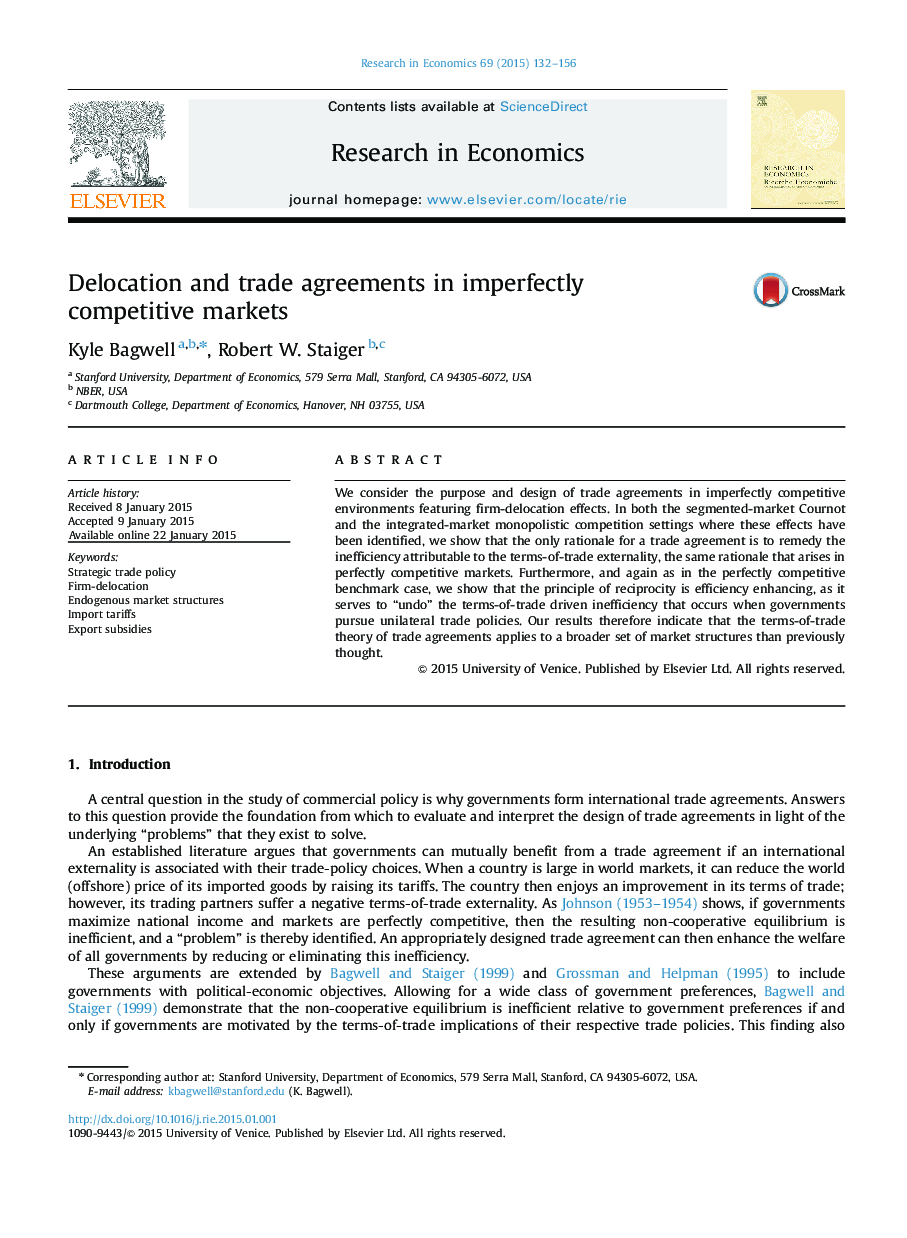| Article ID | Journal | Published Year | Pages | File Type |
|---|---|---|---|---|
| 984368 | Research in Economics | 2015 | 25 Pages |
•We consider the purpose and design of trade agreements.•We examine imperfectly competitive markets with firm-delocation effects.•The terms-of-trade externality provides the only rationale for a trade agreement.•The principle of reciprocity is efficiency enhancing.
We consider the purpose and design of trade agreements in imperfectly competitive environments featuring firm-delocation effects. In both the segmented-market Cournot and the integrated-market monopolistic competition settings where these effects have been identified, we show that the only rationale for a trade agreement is to remedy the inefficiency attributable to the terms-of-trade externality, the same rationale that arises in perfectly competitive markets. Furthermore, and again as in the perfectly competitive benchmark case, we show that the principle of reciprocity is efficiency enhancing, as it serves to “undo” the terms-of-trade driven inefficiency that occurs when governments pursue unilateral trade policies. Our results therefore indicate that the terms-of-trade theory of trade agreements applies to a broader set of market structures than previously thought.
